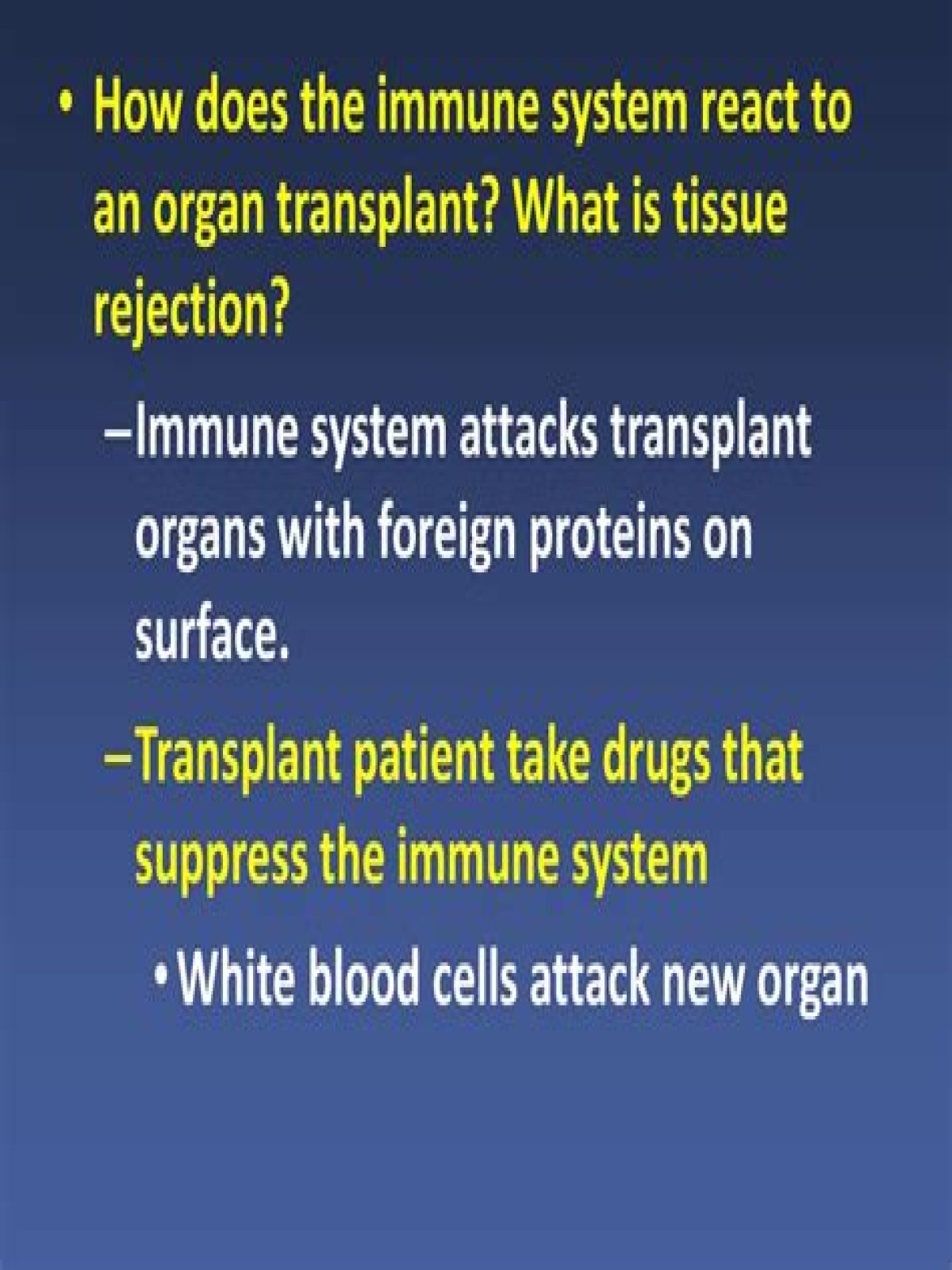- Does organ transplant suppress immune system?
- How long are you immunosuppressed after organ transplant?
- How do organ transplants affect the immune system?
- How long are you immunocompromised after kidney transplant?
- What does an immunosuppressant do?
- Why do kidney transplant patients need immunosuppressant drugs?
- When people receive organ transplants they often need to take immunosuppressant drugs that decrease immune responses because?
- What is an adverse effect of excessive immunosuppression?
Does organ transplant suppress immune system?
Suppression of the Immune System Even if tissue types are closely matched, transplanted organs, unlike transfused blood, are usually rejected unless measures are taken to prevent rejection. Rejection results from an attack by the recipient’s immune system on the transplanted organ.
How long are you immunosuppressed after organ transplant?
About 6 months to a year after transplant, the immunosuppression is generally lowered and the risk of side effects should be low. If you still continue to experience side effects, you need to speak to your transplant professional to either adjust the dose or switch to a different medication.
What immunosuppressants are used for organ transplantation?
The major maintenance immunosuppressive agents currently used in various combination regimens are tacrolimus, cyclosporine, mycophenolate mofetil, azathioprine, everolimus, sirolimus, and glucocorticoids (steroids).
How do organ transplants affect the immune system?
While there are risks involved in any surgery, those who undergo an organ transplant also face the possibility that their immune system will reject their new organ and that they will always be at a higher risk for infections.
How long are you immunocompromised after kidney transplant?
About 6 months to a year after transplant, the immunosuppression is usually lowered and the chance of side effects should be low. If you still have side effects, speak to your transplant team to either change the dose or switch to a different medicine.
Why does immune system reject organ transplants?
This is because the person’s immune system detects that the antigens on the cells of the organ are different or not “matched.” Mismatched organs, or organs that are not matched closely enough, can trigger a blood transfusion reaction or transplant rejection.
What does an immunosuppressant do?
Immunosuppressants are drugs or medicines that lower the body’s ability to reject a transplanted organ. Another term for these drugs is anti-rejection drugs. There are 2 types of immunosuppressants: Induction drugs: Powerful antirejection medicine used at the time of transplant.
Why do kidney transplant patients need immunosuppressant drugs?
Medications After a Transplant. After an organ transplant, you will need to take immunosuppressant (anti-rejection) drugs. These drugs help prevent your immune system from attacking (“rejecting”) the donor organ. Typically, they must be taken for the lifetime of your transplanted organ.
Why are immunosuppressants used in transplant patients?
Organ Rejection Medications that curb the immune system (called immunosuppressants) are essential for transplant recipients, because they prevent and treat rejection. The discovery of immunosuppressants — and the advances still being made — allow many transplant recipients to live longer, healthier lives.
When people receive organ transplants they often need to take immunosuppressant drugs that decrease immune responses because?
People who have had an organ transplant need antirejection medicines. This is because the immune system will try to destroy the new organ. These medicines are also called immunosuppressants. They weaken your immune system and decrease your body’s ability to destroy your new organ.
What is an adverse effect of excessive immunosuppression?
Side Effects The most significant side effect of immunosuppressant drugs is an increased risk of infection. Other, less serious side effects can include loss of appetite, nausea, vomiting, increased hair growth, and hand trembling.
